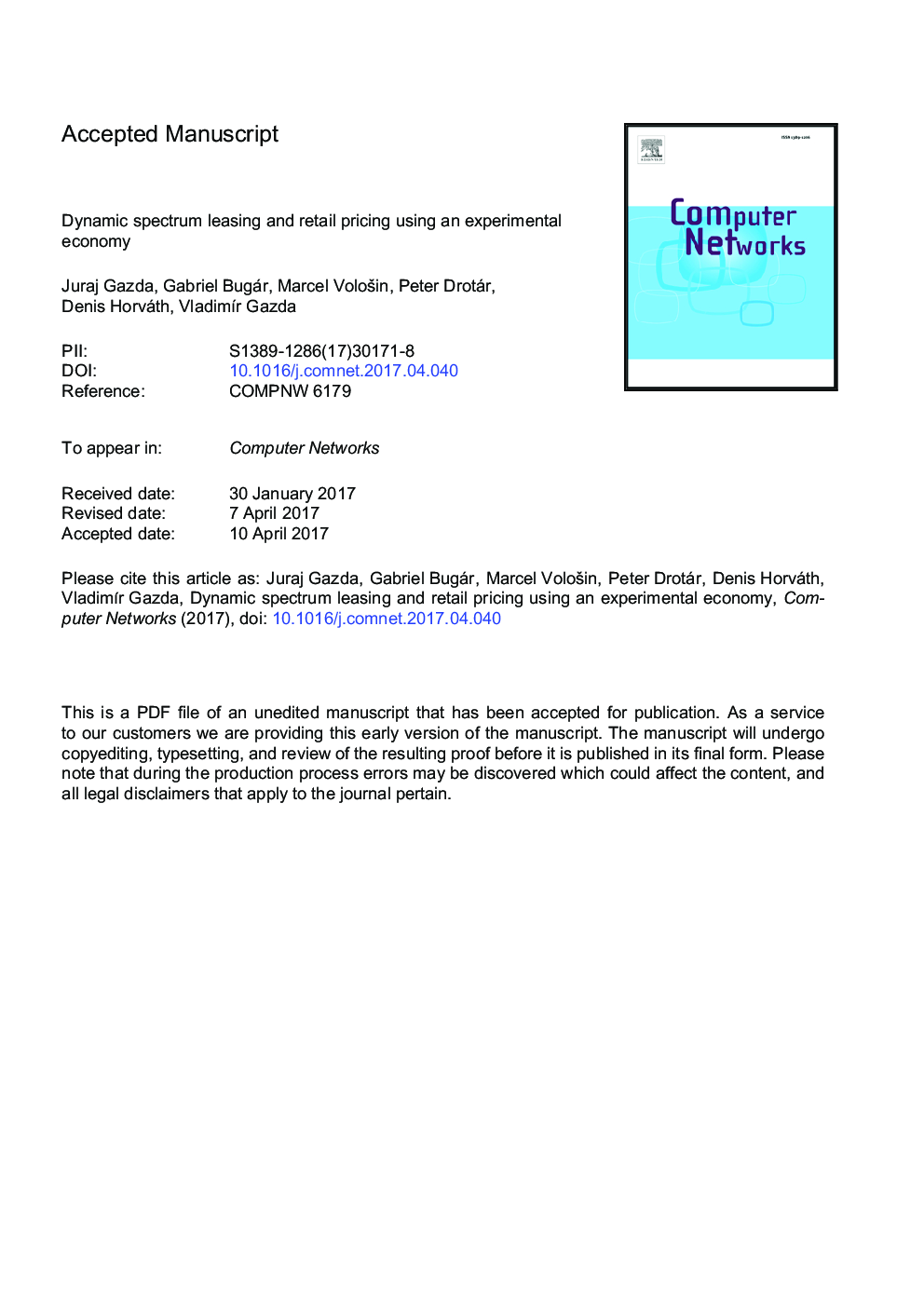| Article ID | Journal | Published Year | Pages | File Type |
|---|---|---|---|---|
| 4954732 | Computer Networks | 2017 | 36 Pages |
Abstract
This paper presents an agent-based computational model for competitive spectrum leasing and pricing. The model can be used to develop strategies for cognitive operators in regions where there is a heterogeneity of operators due to overlapping coverage areas. We model the interactions among interacting entities using a three-stage agent based model in which we apply the basic principles of an experimental economy. The operators make their decisions regarding the frequency resources to be leased on the wholesale-spectrum market using the Roth-Erev reinforcement algorithm, while on the retail market, they provide services for end-users. Pricing decisions on the retail market are made using a family of pricing strategies, such as linear-reward, successful ratio, and trial-and-error, which are feasible when the bounded rationality of the agents is considered. We show that the profit is significantly affected when forgetting and experimentation parameters are added to reinforce the decisions made on the wholesale market. In more advanced pricing schemes, e.g., successful-ratio and linear-reward, the addition of the forgetting parameter significantly improves the performance in terms of the measured indicators, namely, the average profit and Sharpe ratio. On the other hand, in the zero-intelligence trial-and-error approach, we do not see any positive changes in terms of the measured indicators. In addition, several notable phenomena emerged from the interactions of the agents. For example, the classification of operators who take on the role of spectrum investors as either risk-averse or risk-seeking based on the pricing schemes utilized in the retail market was shown to be an emergent feature of the model.
Keywords
Related Topics
Physical Sciences and Engineering
Computer Science
Computer Networks and Communications
Authors
Juraj Gazda, Gabriel Bugár, Marcel VoloÅ¡in, Peter Drotár, Denis Horváth, VladimÃr Gazda,
